The Only Place We Gather Other Than End-of-Year Graduation is the Beginning-of-Year Assembly
On Friday I went to the assembly, as did every other CHS student present that day. It made me kind of mad, but they had no Q&A session with the new principal or any of the other administrators. I’m not mad about the newly tightened safety regulations, no—those are reasonable and ought to be implemented in light of the current state of the US. i.e., more mass shootings than there have been days in 2022. I’m mad about how we sit in an auditorium either alone or with the friends we’ve made over the past three years, in our last year of high school, and honestly quite sick of it on a Friday, on the third day back, and we’re preached at about collaboration and school spirit for an hour in a school that has only ever increased individualism.
“Clements High School has a longstanding tradition of excellence.” This is a very grand and nebulous statement. Excellence in what? The first thing that comes to mind is academics. Yes, this is true. Clements is known for stellar academic performance, year after year—but at what price? American culture already promotes the idea of the individual over the collective, which is why Covid got as bad as it did.
Here in Clements, if you want to be a part of that “academic greatness”, you must forget that you are a part of the whole and instead put yourself and your grades as the priority, because if you don’t, you’ll be risking your spot at the top. Juniors aiming to land in the top 10% or 6% for rankings in order to gain automatic admission to Texas public schools often take six or seven AP courses to boost their GPA. Is that sort of workload possible to handle if you don’t focus on yourself? If you don’t care about school every single day, remember every single assignment, strive for the class high or at least somewhere above the median on every single assessment? In a school that exerts the pressurized view that numbers can make or break your future, this type of mindset is inevitable.
And this pressure has only been increasing. The academic culture here cannot ever become truly collaborative if the GPA continues to operate on a 100-point scale and rank continues to determine automatic admission. More eighth-graders than ever before are skipping eighth-grade science and taking AAC Biology, so much so that there are whispers of some middle schools having enough students to open their own Biology classes. Freshmen in Algebra II are commonplace, and more and more of them are in Precalculus. Modern Physics opened for the first time this year. There are enough seniors taking Multivariable Calculus that there are two classes, and in those two classes there are juniors, too. Too many people do this, and too many people will continue to do this—because the more you skip early, the more AP classes you can take, and the more AP classes you have, the higher your GPA. And the higher your rank.
When you do it, you gain an advantage, and you’re happy about that. Then everyone does it, and you don’t have an advantage anymore, and you have to do something more extreme, get even more ahead, and then you can be happy again. You can feel secure. And then everyone does it, and it repeats, again and again.
I know this because I’ve been at Clements for three years, and I have met people who I think may be forever unmatched in kindness and intelligence, and I have played the game even so, even surrounded by wonderful friends. In freshman year I used to sit in a cold T-shack and make mental lists of everyone I thought was “smarter” than me and project my probable rank so I could prepare myself for disappointment. As a freshman. Fourteen-year-olds are, to an extent, still small inside. The world is still small, but we should be looking out further than this. Further than fear of the people around us surpassing what we think we’re capable of.
I can say I don’t care as a senior now, but that’s only because I cared for three years. I give myself this because I ruined myself over it, and I’m only waiting on the cinders of my love for learning to reforge themselves, slowly, without this errant pressure.
I’m asking you in what alternate reality should a freshman be taking three AP courses, which is what my brother is doing this year. AP Physics 1, AP Computer Science A, AP Human Geography. He’s playing the game, too. I’m asking you in what alternate reality should a freshman take all the normal freshman courses, do wonderfully well in them—97, 98, or above—and still not rank in the top twenty because they don’t have enough AP courses. I’m asking you in what alternate reality can you call William P. Clements High School, a school built on and famed for sheer and cutthroat competition, a school that prizes collaboration; and that this collaboration can somehow be fostered and enhanced through wearing blue on Fridays.
Going to pep rallies. Paying the two dollars to head down to the gym during the extended seventh period. And then after the weekend, we go back to our classrooms and look all around at the friends we love, the friends we know we will have to restrain ourselves from competing with, and then compete. And then play the game like we mean it, like all of our I don’t cares have been pure and dissolvable lies like salt, because if you come to Clements wanting to be excellent academically that’s what you do. You have no other choice.
I’m not mad because the school isn’t going to do anything to change it. I don’t expect that they can change it in an efficient and long-lasting way, because this problem doesn’t only plague Clements, it’s a product of the education system at large. As long as college applications exist in this general format and college remains the end goal, this is where we’re at. I’m mad because they say “collaboration” to hundreds of students sitting in their already-designated friend groups of months and years, acting like this is a family, when—what family other than toxic estate-fighting fictional families have competed like this? A rank is a limited resource. A club presidency is a limited resource. And acting like this competition, this cage-like mental state that descends and grips students as they enter high school, even before they enter, really, can be cured by going to and participating in school spirit events. Like those are true solutions that don’t completely and utterly miss the root of the problem.
The root can’t be cut. It is hard and thick and gnarly and awful, and here to stay as long as Harvard has an acceptance rate of 3%. Swing the ax at it, and you’re only going to shatter your own bones. But don’t pretend like draping a blanket over it is going to prevent anyone from tripping over it and bruising their knee or taking out their eye.
I acknowledge that there are other forms of excellence in sports, electives, and extracurriculars. Clements has wonderful talents in those fields as well, and many depend on the collaborative spirit. Those, too, are vital to the school. But from a purely academic viewpoint, a consistent mindset of “Let’s work together, it’s okay if I can’t fully succeed as long as someone else does” cannot be achieved.
Tell us that success is not measured purely through academics and that you never need to feel afraid or inferior due to lower grades. That we are worthy simply for being people. Tell us this, and then listen to the conversations drifting through the hallways: freshmen babbling around the latest and worst-of-all-time Biology quiz, sophomores writing the first DBQ of their life in World History and losing half their lifespan because they got a 2 and therefore an 80 on a major grade, juniors listing out the seven different quizzes and tests they have that week and letting out hopeless groans, seniors saying whether they have auto admit or not, what classes they wish they took so they boosted their GPA just a little more, if only I didn’t take band for two years, it tanked me. And I got so sunburned.
Why’d you stay after the first year?
I also recognize that I cannot speak for every single senior or even any other senior. My high school life has revolved far too much around academics, and this is the result when I hear of collaboration—anger. That’s it. It’s not like this is anything new, either. I just found it a curious sort of irony when listening to the assembly. Socially formed, academically matured, and no real sense of school other than the desperate need to survive, to keep the numbers up.
I just thought it was funny. Really. In case you couldn’t tell, this isn’t wholly a reactionary essay to a mandatory school assembly, it’s a complaint about the academic climate of Clements.
My God, guys. What even is an AP course anymore? Is it something we take to challenge ourselves, knowing it is usually curriculum taught to college-aged students or is it something we take because everyone takes it and if we don’t, we’ll be the odd ones out, the ones left behind? I no longer think about my education here as a competition, but that’s not because I’ve been enlightened, that’s because my time of competition has passed. Time cured me, not a beginning-of-year presentation decked out in blue, blue, blue.
Sky’s blue too, but you don’t see birds fighting for space.
I’m Anna Lin, a senior. I sometimes write.


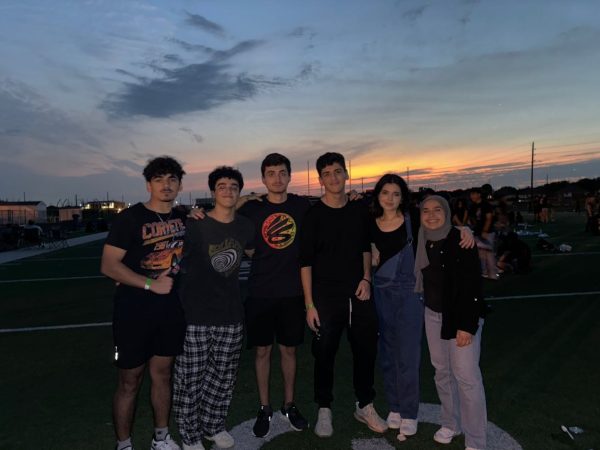
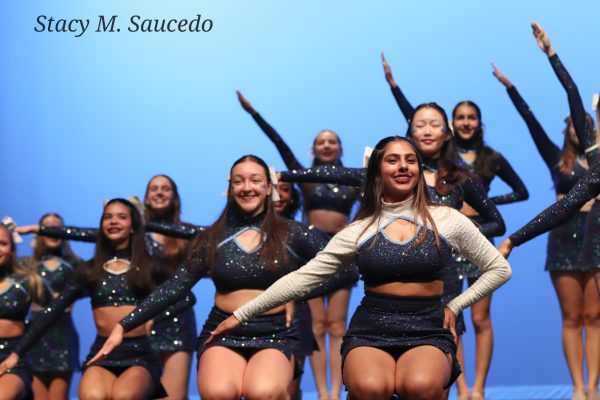
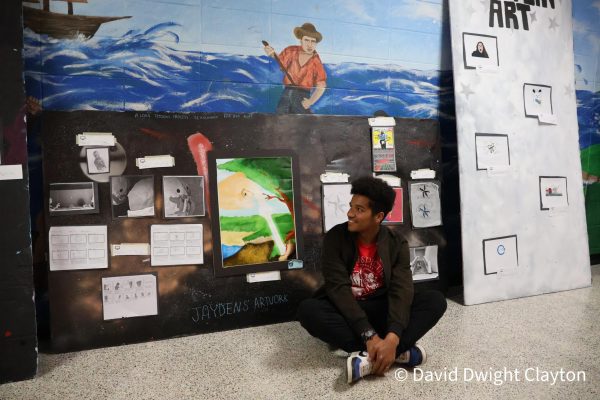

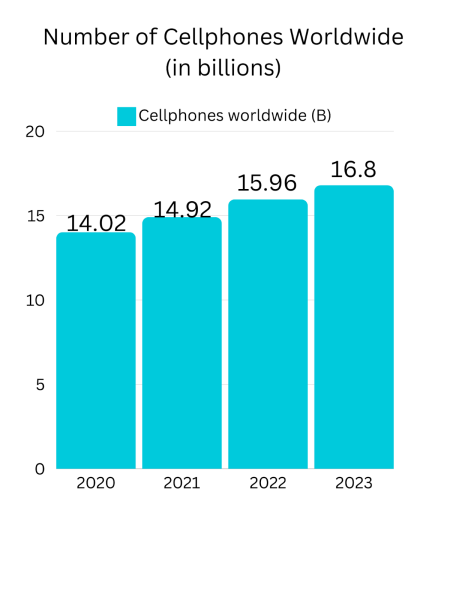
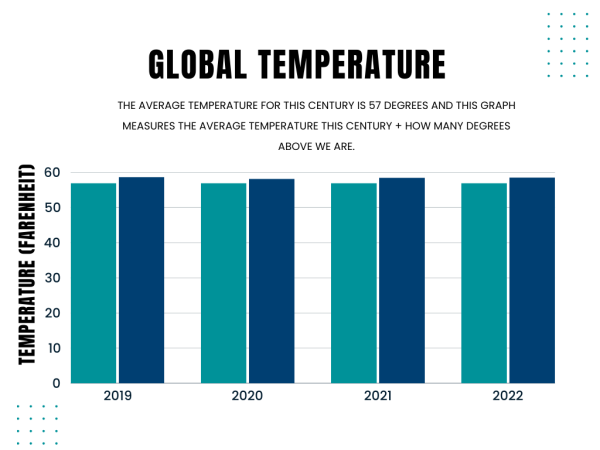
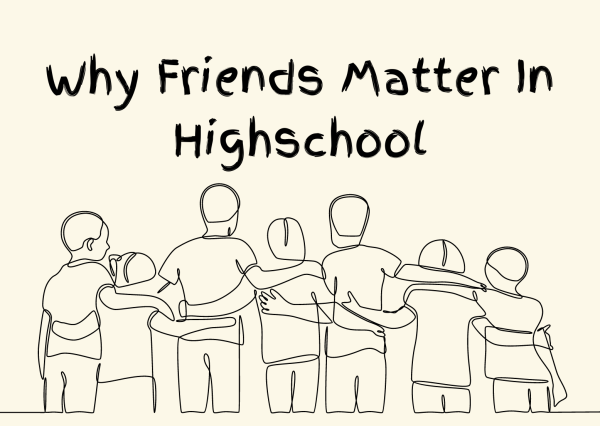
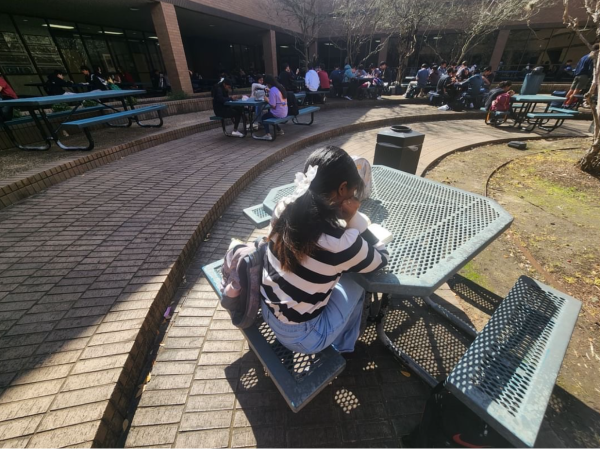
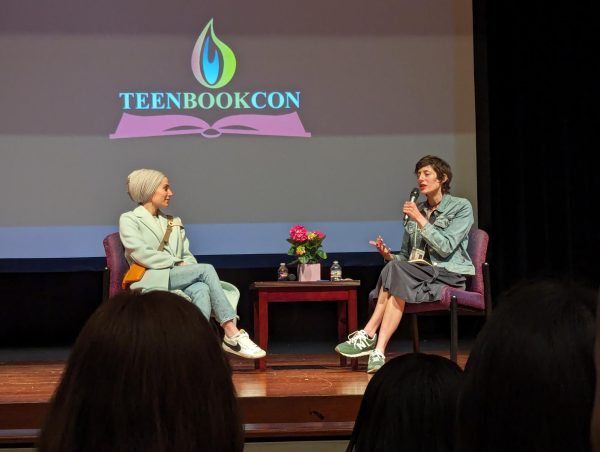



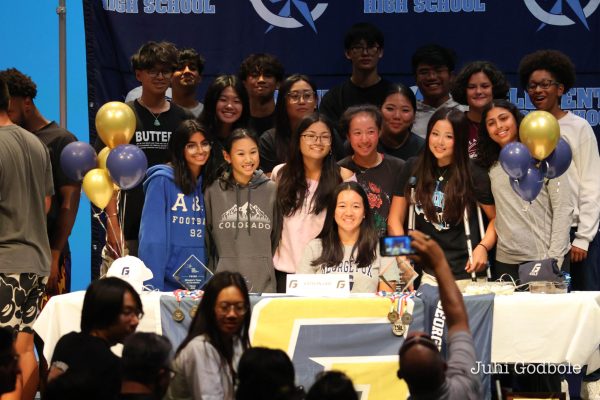
Anon • Oct 14, 2022 at 7:50 pm
I heard that you’ll have to take this article down, it’s really ridiculous that the school is making you do this. Anything that makes them look bad, anything that scratches at the skin-deep sheen of the rotten culture here is promptly shut down. I’m sorry to hear that. What happened to free speech?
Cindy D • Aug 31, 2022 at 2:16 pm
Wonderful and Brave! ! ALL – including educators (especially colleges & universities ) should listen and think about this seriously.
Ria • Aug 30, 2022 at 9:16 pm
More people need to read this and this needs to spread
soham • Aug 30, 2022 at 8:26 pm
That was such a nice read and genuinely very well written, I love the part where you wrote, “we go back to our classrooms and look all around at the friends we love, the friends we know we will have to restrain ourselves from competing with, and then compete. And then play the game like we mean it.” There’s definitely been times all throughout highschool where I’ll, for example, help someone with their homework and then see them do better than me on a quiz in the same class and think, “should I have not done that?” and it really makes you realize how much the school sets you up to self-prioritize and see everyone else as like adversaries. Of course I should’ve done that, I did a good thing helping them out, but then why does that put me behind?